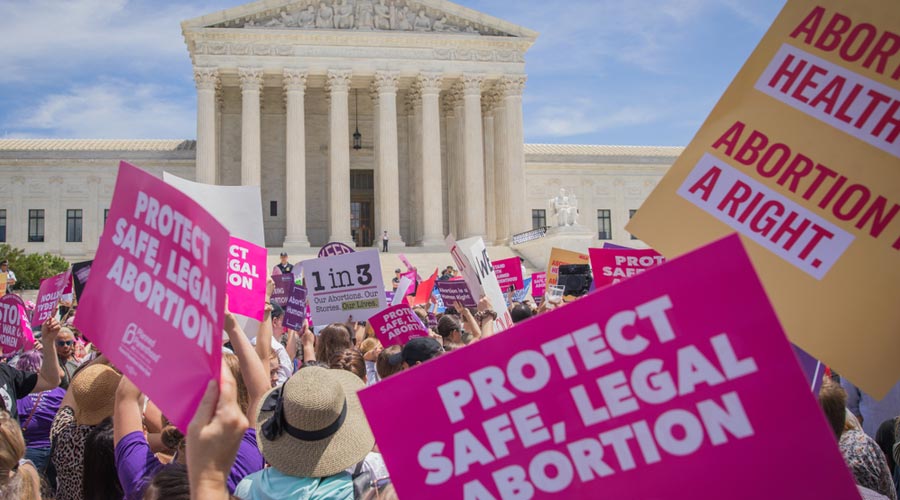The Texas Supreme Court allowed a 1925 law banning abortion to take effect late on Friday night, overturning a lower court ruling that had temporarily blocked it.
The decision was the latest in a series of legal battles across the country following the Supreme Court’s decision on June 24 to overturn Roe v. Wade, a nearly half-century-old ruling that had established a constitutional right to abortion nationwide.
In Texas, that meant a 1925 law written before Roe that had banned abortions and punished those who performed them with possible imprisonment automatically went into effect, said Ken Paxton, the state’s attorney general.
Though the law was not enforced after Roe was decided in 1973, it had nevertheless remained on the books. That ban was temporarily blocked by a Harris County judge after abortion clinics sued for a stay, arguing that it had effectively been repealed after the landmark Roe ruling.
On Saturday morning, Paxton called the reversal of the stay a “pro-life victory!” on Twitter. “Our state’s preRoe statutes banning abortion in Texas are 100 per cent good law,” he wrote. “Litigation continues, but I’ll keep winning for Texas’s unborn babies.”
The state Supreme Court’s decision on Friday partially overruled the decision of the lower district court. Both sides will continue to argue their case involving the old law on July 12 in front of that district court.
The lifting of the freeze did not allow for criminal enforcement of the ban, the American Civil Liberties Union said in a news release. The group is representing abortion clinics in the legal fight.
“Extremist politicians are on a crusade to force Texans into pregnancy and childbirth against their will, no matter how devastating the consequences,” said Julia Kaye, an attorney with the ACLU Reproductive Freedom Project.
Even before the overturning of Roe, a law that was passed last year in Texas had allowed abortions only up to about six weeks of pregnancy.
And when the Roe decision was overturned, a “trigger ban” was activated to prohibit all abortions in Texas from the moment of fertilisation, with rare exceptions including to save the life of the mother.
That law goes into effect at the end of July. Texas is one of several states where abortion rights groups have quickly taken their campaign to the courts, aiming to block or delay abortion restrictions and bans from going into effect.
New York Times News Service
Jerry Hall files for divorce from Rupert
Jerry Hall filed for divorce from billionaire husband Rupert Murdoch on Friday, citing “irreconcilable differences”, six years after the pair married.
The 66-year-old model sought unspecified spousal support and attorneys’ fees from 91-year-old media mogul Murdoch, in a California court filing.
Hall said in the petition filed with the Los Angeles Superior Court she was “unaware of the full nature and extent of all (Murdoch’s) assets and debts, and will amend this petition when the information has been ascertained”.
She also asked the court to terminate its ability to be able to award support to Murdoch. Hall’s attorney, Ronald Brot, did not immediately respond to Reuters request for comment.
Murdoch’s legal representatives could not be reached outside business hours.
Murdoch and Hall married in London’s Spencer House in March 2016. It was Murdoch’s fourth marriage.











